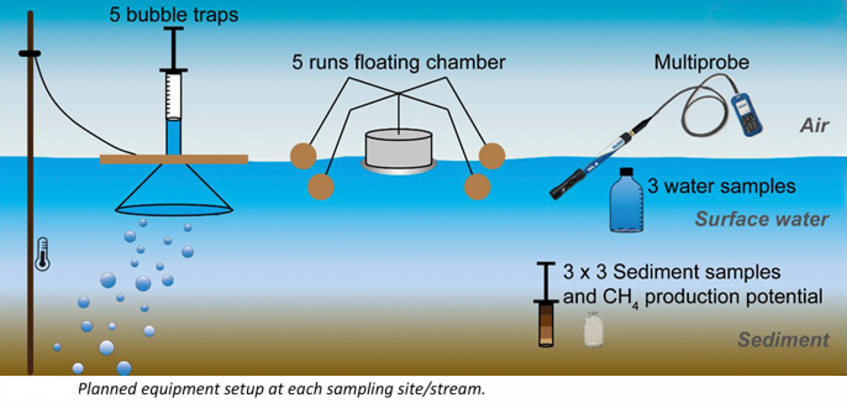Helena Cvetkovic
"My name is Helena. I discovered passion for biology when I was in seventh grade. After obtaining bachelor diploma in biology, I enrolled into the master program Ecology and Ecosystems at the University of Vienna where I got familiar with fascinating world of microbial ecology. Currently I am doing a PhD as a part of Methan-e-scape project on methane ebullition from streams focusing on finding and quantifying methanogens in the stream sediments under the supervision of Clemens Karwautz and Christian Griebler."

The dynamics of methane ebullition in heterogeneous stream landscapes
Methane (CH4) is a potent greenhouse gas with 25 times higher global warming potential than carbon-dioxide (CO2). The dramatic rise of methane concentration in the atmosphere since industrial revolution has, therefore, mostly been due to the negative anthropogenic influence on the environment, even though it is produced in natural environments (e.g. wetlands, ruminants, paddy soils) as well. Although inland waters have only recently been recognized as significant sources of methane, it has since been found that they are responsible for up to roughly half of the global methane emissions. Methane emission in the freshwater systems can occur via diffusion (i.e. concentration gradient) or through ebullition where CH4 is formed and trapped in the sediments until it is rapidly transported in gas bubbles to the atmosphere. Production of methane in the sediments is attributed to the methanogenic archaea, while consumption in the sediment-water interface and water column to the methane-oxidizing bacteria (MOB).
The aim of this study is to elucidate temporal methane dynamics by performing sampling campaigns across seasons, which will establish the magnitude and drivers of methane ebullition and to investigate the microbial networks involved in processes of production and consumption of methane. Also, comparison and testing of different sampling approaches will be done in effort to improve and standardize ebullition measurements across different streams and scales.
Better understanding of methane emissions from freshwater systems is urgent especially in the context of climate change where elevated methane emissions from inland waters are predicted.

